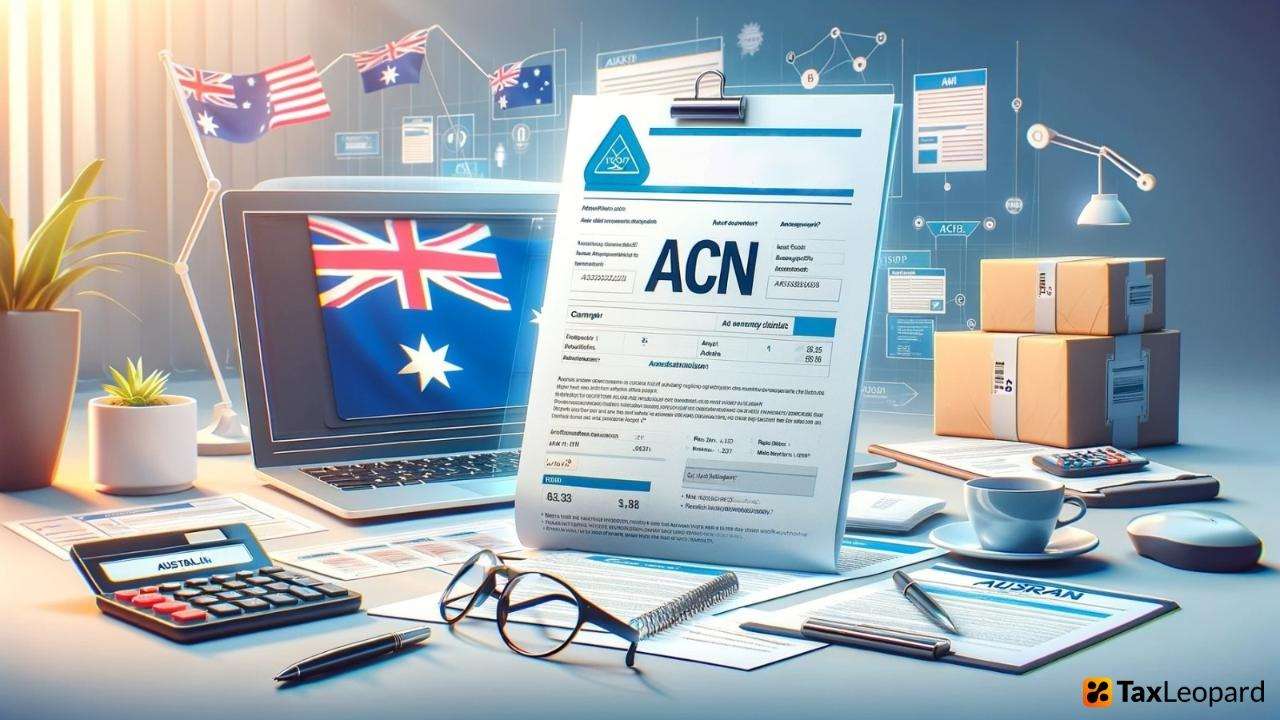Starting a business in Australia can be confusing due to various registration requirements. One key element is understanding “what is an ACN?”. Many new business owners find themselves puzzled about the difference between an ABN and an ACN. This confusion can lead to delays and potential compliance issues.
Every company in Australia must have an ACN to operate within legal and regulatory boundaries. The ACN is a unique 11-digit number used to identify a company. It is required by the Corporations Act 2001. This guide will provide all the necessary information about Australian Company Number registration, its importance, and how it differs from an ABN.
What is an ACN?
An Australian Company Number (ACN) is a unique nine-digit number issued by the Australian Securities and Investments Commission (ASIC). This number is essential for identifying a company registered in Australia. Every company in Australia must have an ACN, which helps distinguish it from other legal entities. The ACN appears on all official documents, invoices, and receipts, ensuring compliance with Australian law. Companies need an ACN to operate within the country and fulfil legal obligations. Having an ACN also facilitates business operations and interactions with the Australian Taxation Office (ATO).
Importance of Having an ACN
An ACN is a unique 9-digit number that identifies every company in Australia. Issued by ASIC, it ensures each company operates within legal and regulatory boundaries. To comply with the Corporations Act 2001, companies must display their ACN on documents. This number is essential for distinguishing between companies and verifying their registration status.
Businesses, including sole traders and partnerships, need an Australian Company Number for proper legal identification. Having an ACN allows companies to engage in activities such as PAYG withholding and registering for the Goods and Services Tax, ensuring compliance with Australian regulations.
Difference Between an ABN and an ACN
An ABN and an ACN serve different purposes for Australian businesses. A unique 11-digit number, an ABN, identifies businesses for tax and other government purposes. All businesses, including sole traders, need an ABN to operate legally and for GST registration. An ACN, issued by ASIC, is a unique number that identifies a company as a separate legal entity. Companies must display their ACN on official documents. Registering for an ABN can be done on the Australian Business Register website. Companies also need an ACN to comply with the Corporations Act 2001. For more information, check out our article on ACN vs ABN
How to Get an ACN
Registration Process:
To register for an ACN, visit the Australian Securities and Investments Commission (ASIC) website. Start by selecting the option to register your company and follow the prompts provided. You will need to choose a unique company name, ensuring it does not conflict with similar names already registered. The registration process requires details about the business structure, such as whether it is a trust, partnership, or sole trader. Once the information is submitted, ASIC will issue the ACN. This nine-digit number identifies your company in all official and legal matters in Australia.
Necessary Documentation:
- Company name
- Business structure details
- Registered office address
- Details of company directors and secretaries
- Share structure information
- Payment of registration fee
Common Mistakes to Avoid
Mistakes occur when applying for an ACN through the Australian Securities and Investments Commission (ASIC). These include providing incorrect company details, which can delay the process. Failing to understand the distinction between an Australian Company Number (ACN) and an Australian Business Number (ABN) often leads to confusion. Another common error is neglecting to register the correct business structure, which affects legal and tax obligations. Omitting the inclusion of a unique nine-digit number for your company also causes issues. It is crucial to follow the prompts provided by ASIC to avoid these mistakes. Properly registering your company name and ensuring it does not conflict with similar names can prevent future legal problems.
Australian Company Number for Sole Traders
Sole traders in Australia typically do not need an Australian Company Number (ACN). However, they must obtain an ABN from the Australian Business Register (ABR). The ABN is an 11-digit number used for tax and business identification purposes. Sole traders should register for an ABN to legally invoice clients and claim GST credits. The Australian Taxation Office (ATO) handles the ABN application, ensuring sole traders meet all taxation requirements.
Conclusion
In understanding “What is an ACN?” it becomes clear that this unique 9-digit number is vital for every company in Australia. Managed by ASIC, the ACN helps to identify a company, ensuring it operates within legal and regulatory boundaries. This number must appear on important documents, providing legitimacy and compliance. Both ABN and ACN are essential for different business types, including sole traders and partnerships. Registering for these numbers involves following specific steps on the Australian Business Register website. Do you believe having both an ABN and ACN would benefit your business operations?
FAQs
1. How is an ACN used on documents?
The ACN must be displayed on all official company documents and communications.
2. Can I operate a business without an ACN?
No, companies in Australia must have an ACN to operate legally.
3. What if I have both an ABN and ACN?
Both numbers should be used appropriately on relevant documents and registrations.
4. Where can I find my ACN?
Your ACN is provided by ASIC upon successful registration of your company.
5. Is there a fee to register for an ACN?
Yes, there is a fee to register for an ACN with ASIC.





